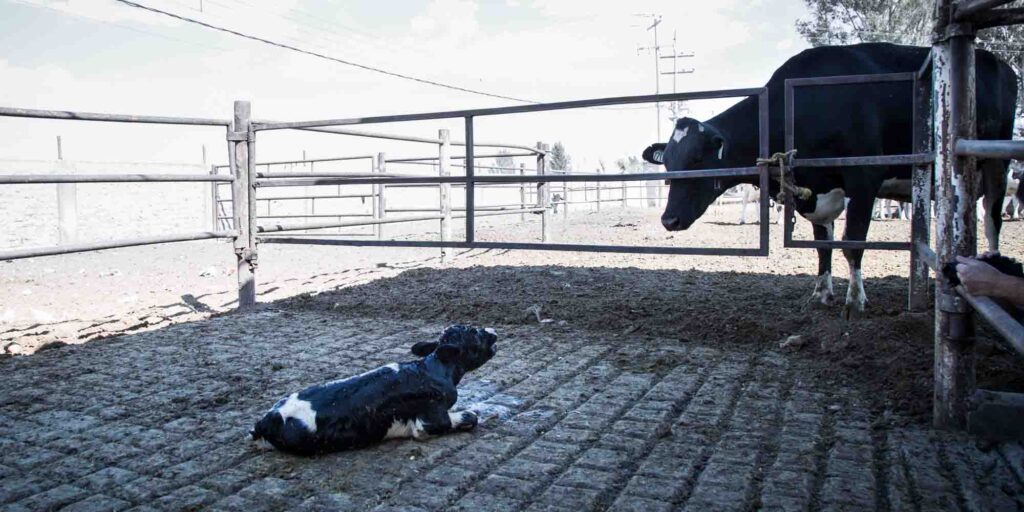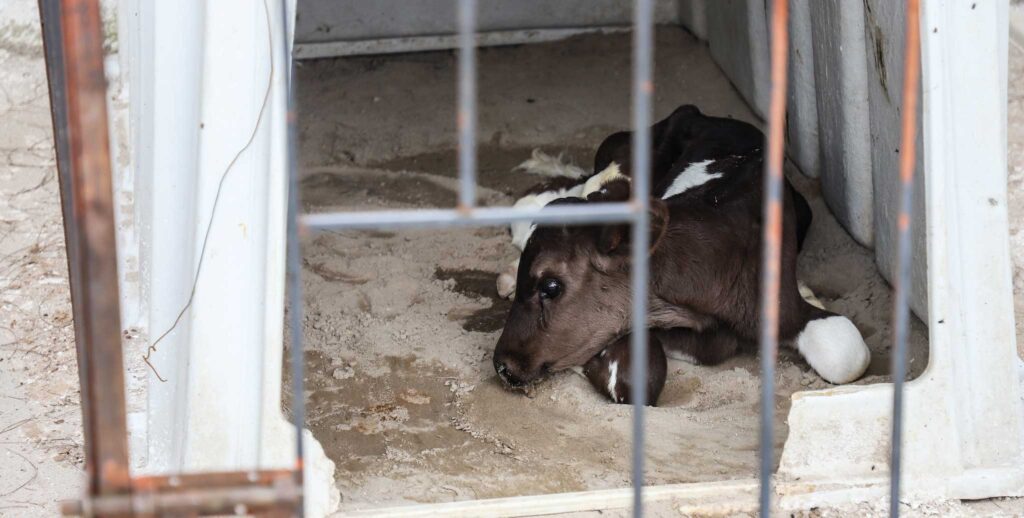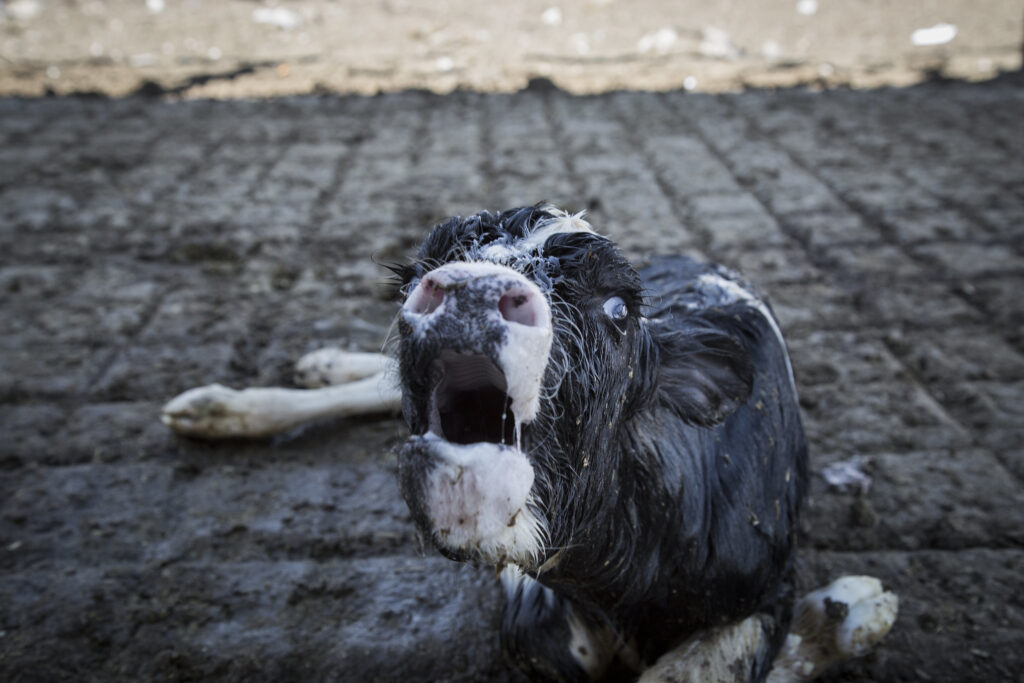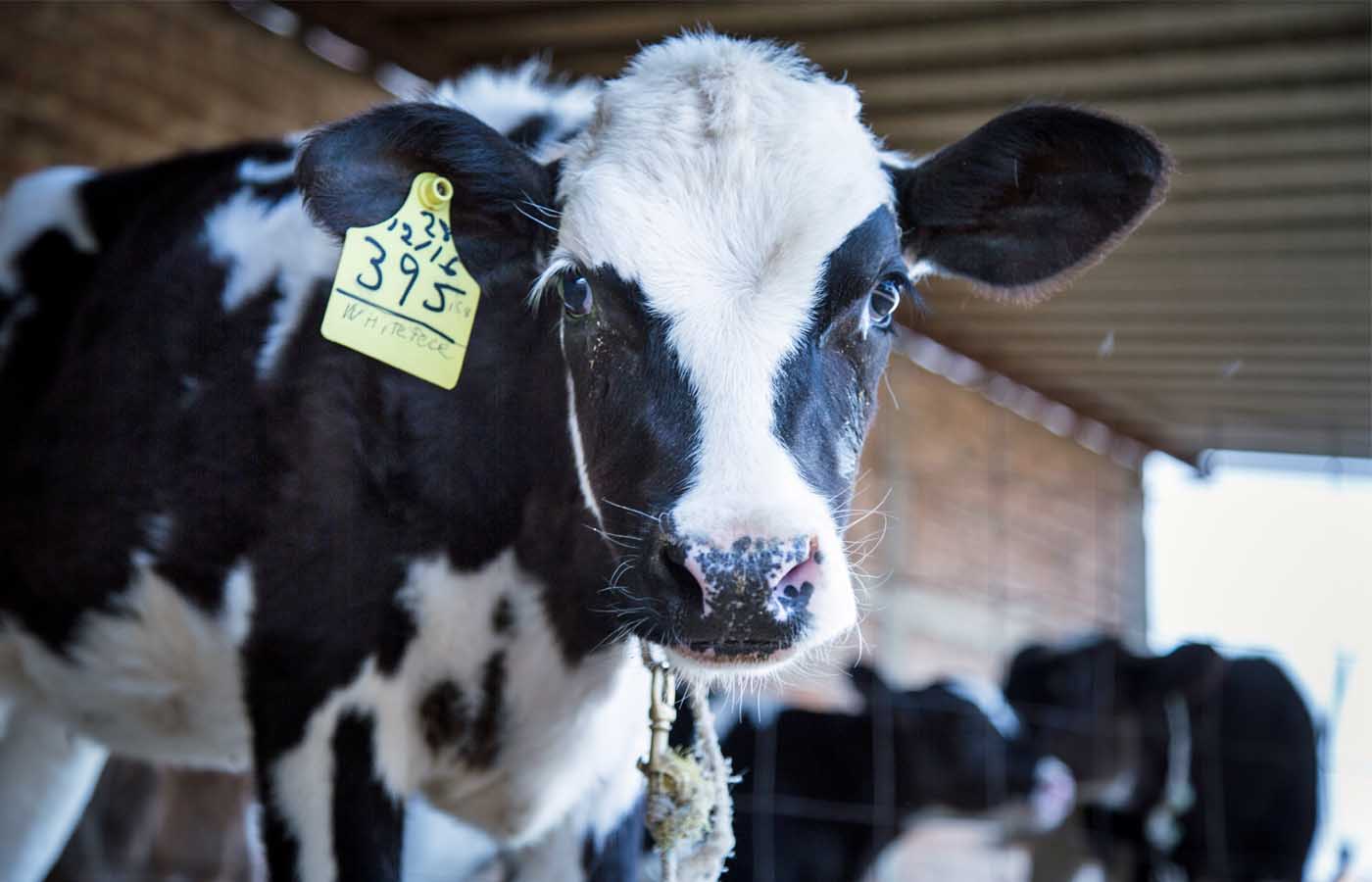
[ad_1]
Never-before-seen footage by Animal Equality exposes rampant cruelty in Mexico’s dairy industry. As shown by photographs and video, calves’ horns are cut by workers without anesthesia and then burned with a chemical paste.
For years, Animal Equality has been exposing this cruel industry, including:
- Male calves killed after birth because they cannot produce milk for the industry to sell
- Female calves selected for a future of repeated impregnation and separation from their calves
- Separated calves fed with bottled formula instead of their mothers’ milk, which is sold for human consumption
- The extreme confinement of calves in small stalls, where they are unable to play, socialize, or exhibit natural behaviors
- The rough handling of newborn calves by workers
An Industry Built on Cruelty
While dairy corporations often boast about their “humane” and “high-welfare” labels, advocates argue that a lack of transparency still pervades the global industry.
Similar to humans, cows must give birth to produce milk. Rather than bonding with their mothers and drinking their milk, calves are immediately ripped away by the industry. Mother cows and their calves often cry for each other for days or weeks, with some mothers chasing after their calves as they are dragged away. The milk intended for their calves is sold for human consumption.

A calf in the dairy industry faces two possible futures. In many countries, including Mexico, male calves are deemed worthless because they can’t produce milk for the industry to sell. They are slaughtered shortly after birth.
In other countries, including the United States, male calves are held in tight confines and deprived of basic nutrients, such as iron. This produces pale, anemic flesh that the veal industry profits from.

Meanwhile, female calves are bred to replace mothers who are deemed “unproductive.” These calves will soon endure a repeated cycle of impregnation and separation. If female calves are not needed to replace their mothers, they are sold to other farms or killed.

MAKE 2X THE IMPACT
For a limited time, your donations to end animal cruelty will be matched by an anonymous donor. Double your impact today and spare millions of animals from suffering.
Calves who survive this selection process are mutilated without anesthesia. This includes the cutting, burning, or chemical removal of their horns, which causes acute pain and stress. Infections are common, and wounds are not always cauterized to prevent excessive bleeding.
After a lifetime of repeated impregnation, mother cows are finally sent to slaughterhouses. In many cases, their bodies are sold for meat.
As consumers, we have a big impact. Our decisions impact others, and animals have always been the most affected. That’s why we invite people to recognize that impact and make informed decisions to avoid participating in animal cruelty. These images will never be shown by the industry in their advertising. That’s why it’s so important to spread the word.
Dulce Ramirez, Vice President of Latin America, Animal Equality
Global Dairy Industry Under Scrutiny
With millions of calves separated from their mothers each year, Mexico ranks fifteenth globally for milk production. Animal Equality in Mexico’s newly-released footage was launched as part of its “Change the Origin of Your Milk” campaign. This campaign aims to reduce milk consumption across the country.
However, Mexico is not alone in its tolerance for animal cruelty. Animal Equality’s investigation of a Babybel supplier in the United States found frozen calves tossed in dead piles, their hooves separating from their legs. Some lay in their own diarrhea, their food and water frozen in subzero temperatures.
The global dairy industry has faced intense scrutiny in recent years for its dependence on animal cruelty. Advocates note that cows are sentient, intelligent, and social animals, capable of forming emotional bonds with others.
In factory farms, however, they are unable to express their natural behaviors. Instead, they live under extreme stress, contradicting the public’s perception of animal welfare in the dairy industry.
In the United States, dairy sales have declined in recent years as investigations like these showcase the true cost of each product. By choosing alternatives for milk, cheese, yogurt, and other dairy products, consumers can protect the bonds between mother cows and their calves.
Choosing plant milks–such as oat, soy, rice, cashew, almond, and hemp–is a simple but impactful decision. Plant-based cheeses and yogurts line the shelves of most major grocery stores, making the plant-based transition as seamless as possible.
By joining the Love Veg movement today, you can take a stand against the industry’s misleading advertisements and demand better for animals who desperately need your help.

DEFEND MOTHERHOOD
A cow’s maternal instincts foster a gentle bond with her vulnerable calf.
Preserve this tender relationship by choosing plant‑based alternatives to dairy products.
[ad_2]
Source link

Leave a Reply